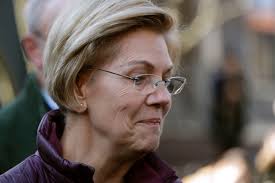Different Hopes For Different Folks

“Number one…” presidential hopeful Joe Biden Jr. said at his March 15 debate with equally hopeful (though less entitled to be so) Senator Bernie Sanders, “if I’m elected president and have an opportunity to appoint someone to the courts, I’ll appoint the first black woman of the courts. It’s required that they have representation now. It’s long overdue.”
He continued with his number two: “If I’m elected president, my cabinet, my administration will look like the country, and I commit that I will, in fact… pick a woman to be vice president. There are a number of women who are qualified to be president tomorrow.”
No doubt there are, as there are a number of qualified men. But am I alone in finding it puzzling that the choice of who should be the proverbial heartbeat away from the highest office in the land might be made on a basis of gender? Or that appointment to the highest court of the land be based on the same plus race?
What am I missing here?
Yes, I know, and lament, the bias against, and mistreatment of, women and blacks (and Native Americans, and Hispanics, and other groups) over our country’s history. And I even understand, if I don’t fully agree with, those who advocate for things like reparations for descendants of American slaves.
But how exactly do historic wrongs translate into some sort of right of precedence for public office? Apologies are owed to victims of discrimination and exploitation, perhaps compensation is even owed. But a desk in the White House or a seat on the High Court bench?
And, surely, the fact alone that there hasn’t yet been a black president or Supreme Court justice who was also a woman is hardly a compelling argument for choosing one. There hasn’t been a bald president since Eisenhower either. Or a president less than six feet tall since Grover Cleveland, and he was 5’11”. (Okay, Jimmy Carter was only 5’10; but look how he turned out.) Should we be tapping members of the short, bald demographic for leaders?
No less an example of an accomplished woman than House Speaker Nancy Pelosi told Politico in 2016, “I don’t think that any woman should be asked to vote for someone because she’s a woman.” Well, should any woman be asked to be a running mate or appointed a judge because she’s a woman? That would have been my next question, but, alas, I wasn’t the interviewer.
Yes, of course, I fully recognize the nature of politics and its close cousin horse-trading. I understand the practical wisdom of making choices that are likely to win the votes of particular segments of the electorate. But can’t a candidate just appoint the black woman (or short bald guy) without heralding it as some historically mandated act of high principle?
Please don’t get me wrong. I think that women can be excellent leaders. From Heleni Hamalkah to Golda Meir to Margaret Thatcher, women have done exemplary jobs in positions of power. It’s just that I think – call me crazy – that the best candidate for a position of power should be… the best candidate for the position of power, regardless of gender or race (or height).
Research has shown that female lawmakers tend to bring more federal money back to their districts than their male counterparts. And in their book Gendered Vulnerability: How Women Work Harder to Stay in Office, political scientists Jeffrey Lazarus and Amy Steigerwalt found that congresswomen are disproportionately likely to serve on committees for issues that are of most interest to their constituents, and more likely to co-sponsor legislation that helps those who elected them. So, women politicians? No problem.
But women chosen because they’re women? Problem.
Aside from the essential folly of it, choosing or appointing a woman to a high position mainly because of her womanhood disadvantages the woman. As Justice Clarence Thomas has written about affirmative action, the favoring of people based on their skin color – what he calls “racial engineering” – has “insidious consequences” – namely, the resultant assumption by others that the favored person isn’t really qualified. The same is true with gender engineering.
To me, though, even worse than choosing a woman for public office because she’s a woman is the message that doing so sends about the goals that should matter in life. Hint: Public office isn’t high on the list.
When former presidential hopeful (yes, a lot of hopes have come and gone) Senator Elizabeth Warren announced the end of her campaign on March 5, she showed some emotion as she lamented “one of the hardest parts” of her decision, that “all those little girls… are going to have to wait four more years.” For a bigger girl, that is, to become president.
High public office may indeed be an important goal, perhaps the ultimate one, of some little girls. It clearly is the consuming aim of some grown women. But, when they were little girls, the daughters my wife and I were privileged to raise would politely have declined to endorse such desiderata.
They had, as most of our community’s young women have, very different goals, hopes that are likely regarded as backward by many contemporary observers but are more beneficial to society than they may be capable of understanding. Hopes to, with Hashem’s help, become partners with husbands, to become mothers, grandmothers and beyond. Hopes to mold not legislation but hearts and minds.
Different folks, different hopes. Don’t cry for them, Senator Warren.
© 2020 Hamodia


Recent Comments